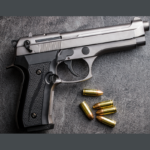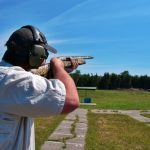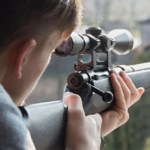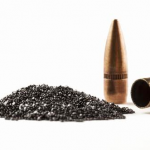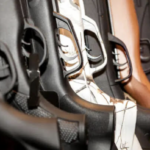The Offence of Causing Danger with a Firearm in New South Wales
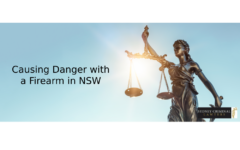
A Sydney-based police officer has been handed a criminal conviction and placed on a good behaviour bond after pointing a loaded pistol at a junior colleague and threatening “I’ll shoot you”.
30-year old Constable Dominic Gaynor pointed his police-issued Glock pistol toward 26-year old Probationary Constable Morgan Royston at Sydney Central Police Station on Day Street in the Sydney CBD during a conversation about the film, Top Gun: Maverick.
He was charged following an investigation with one count of causing danger with a firearm and pleaded guilty to the offence in Sydney’s Downing Centre Local Court.
He was ultimately placed on a community correction order – which is a type of good behaviour bond that comes with a criminal conviction – for a period of two years.
“I’ll shoot you”
According to the agreed facts tendered in court, Officer Gaynor initially laughed at his junior colleague and said, “Don’t spoil the movie, cunt”. Another officer then left the room, saying “lalalala”.
A phone then rang and as an officer picked it up, Constable Gaynor took his police pistol out of its holster and pointed it at Probationary Constable Royston before saying: “I’ll shoot you”, laughing as he continued pointing the loaded weapon at the junior officer for about five seconds.
While it was accepted Officer Gaynor did not have his finger on the trigger at the time, his junior said the episode had a lasting impact on him – causing nightmares and making it difficult for him to work.
The junior officer went on to quit the force, going on to sell cars.
For his part, Constable Gaynor was placed on restricted duties after the incident. He was only suspended from the force after pleading guilty to the offence and has not yet been dismissed.
No joke
During the sentencing hearing, His honour Magistrate Michael Maher made clear that firearms licence holders have an “unrelenting degree of responsibility”.
He emphasised that Officer Gaynor breached this duty by exhibiting “utter disregard” for safety when he pointed the loaded, quick-fire pistol at a junior officer – thinking it was “a joke, it was funny, or it was tomfoolery”.
His Honour recorded a criminal conviction against the officer and imposed a two-year community correction order on him, with a condition that he perform 100 hours of community service.
Culture of irresponsibility and unaccountability
The incident once again raises concerns about the culture of irresponsibility that pervades the New South Wales Police Force – whereby officers feel that having a police badge and a range of weaponry including pepper spray, a baton, a taser, a pistol and a bullet-proof vest licences then to act as if they are above the law.
Last year, two officers were removed from active duty and had their firearms confiscated after pointing them and taking selfies for a social media site called “BeReal”.
One of the photos shows an officer holding a pistol to his own head as his female colleague also takes aim at him with her firearm.
And while these officers as well as Constable Gaynor have been made accountable for their actions, the fact of the matter is that this is the exception rather than the rule – with officers systematically getting away with brutality and other forms of misconduct when it comes to members of the general public.
Part of the reason for this is that the vast majority of complaints made against police by the public are either not investigated at all or do not go past the internal investigation stage – whereby police essentially investigate themselves.
Indeed, only 2% complaints against police that are referred to the New South Wales police watchdog, the Law Enforcement Conduct Commission (LECC), are actually investigated, as the body is chronically under-resourced.
On top of that, the LECC has no power to discipline let alone prosecute officers who engage in crime and other misconduct – it can only make recommendations.
So, the toxic culture is left to fester – with police effectively policing themselves.
The offence of causing danger with a firearm in New South Wales
Causing danger with a firearm or spear gun is an offence under section 93G of the Crimes Act 1900, which carries a maximum penalty of 10 years in prison.
To establish the offence, the prosecution must prove beyond reasonable doubt that:
- You possessed a loaded firearm or loaded spear gun, and
- You possessed it in a public place or in any other place so as to endanger the life of any other person, or you fired the firearm or spear gun in or near a public place, or you carried or fired the firearm or spear gun in a manner likely to injure, or endanger the safety of yourself or any other person or property, or with disregard for the safety of yourself or any other person.
What is a public place?
A ‘public place’ includes any place that is publicly owned as well as privately owned property that is open to members of the public, such as restaurants, pubs and clubs, shopping centres and shops, sporting venues and cinemas, and areas of government bodies that are accessible to members of the public.
What is a firearm?
A ‘firearm’ is defined as a gun or other weapon that is or was capable of propelling a projectile by means of an explosive, and includes a blank fire firearm, or an air gun, but does not include a paintball marker.
The definition includes an ‘imitation firearm’, which is an object that, regardless of its colour, weight or composition, or the presence or absence of any moveable parts, substantially duplicates a firearm in appearance, but is not a firearm.
The definition does not include an object produced and identified as a children’s toy.
When is a firearm or spear gun considered to be loaded?
A firearm is considered to be ‘loaded’ if there is ammunition in its chamber or barrel, or in its magazine or other device capable of fitting ammunition to its chamber or barrel.
A spear gun is loaded if a spear, or other instrument or thing similar to a spear, is fitted to it.
Statutory legal defence
You are not guilty of the offence if you are able to satisfy the court, ‘on the balance of probabilities’, that you had a reasonable excuse or lawful purpose for possessing the item.
General legal defences
In the event you are able to raise evidence of a general legal defence to the charge, the onus then shifts to the prosecution to prove beyond reasonable doubt that the defence does not apply in the circumstances of your case.
You are entitled to an acquittal if the prosecution is unable to do this.
General legal defences to causing danger with a firearm of spear gun include self-defence, duress and necessity.
Going to court for a criminal offence?
If you have been accused of a criminal offence including an offence involving a firearm, call Sydney Criminal Lawyers to arrange a free conference with an experienced defence lawyer who will review your case, advise you of your options and the way forward, and fight for the optimal outcome.




